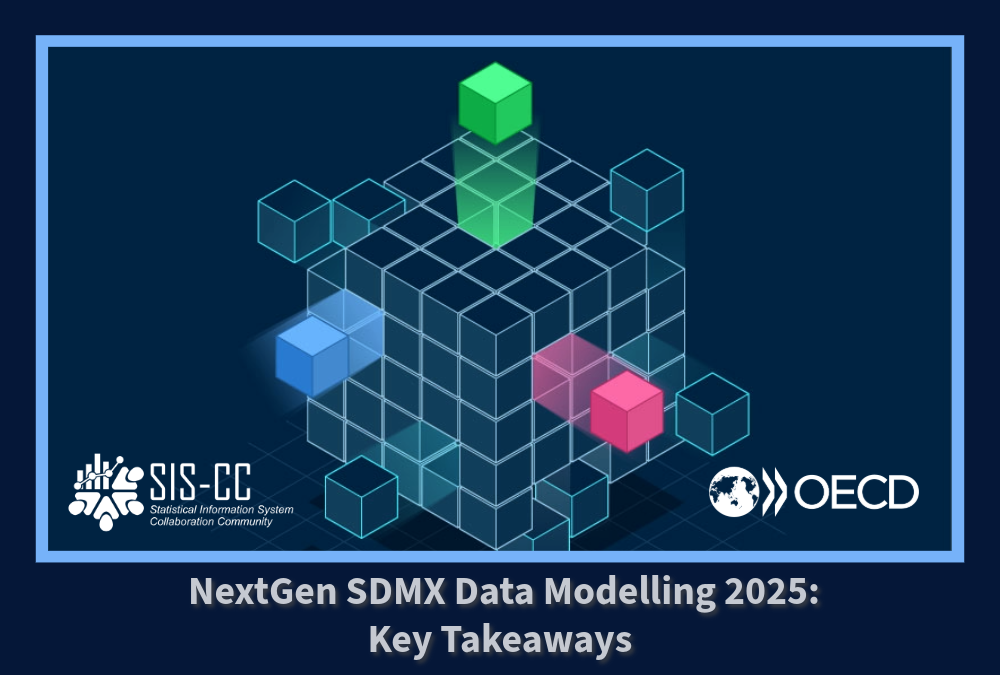
We are excited to showcase a success story in the implementation of Uruguay’s Labour Market Information System (LMIS) through SIMEL.uy. This initiative, promoted by the International Labour Organisation (ILO), a Community member, exemplifies the power of the .Stat Suite and SDMX, and highlights the collaboration fostered within the Statistical Information System Collaboration Community (SIS-CC).
Prior to adopting the .Stat Suite, the Uruguayan Ministry of Labour and Social Security (MTSS) faced numerous challenges in managing their data. According to Carolina Da Silva and Mauricio Vidal, project managers of SIMEL, the ministry grappled with “scattered, unsystematised, and disordered information.” Limited resources, dedication, and time availability led to the underutilisation of administrative records from the MTSS, contributing to the data fragmentation.
“The data sources were diverse, with underutilisation of administrative records from the MTSS due to limited resources, dedication, and time availability.”
Carolina Da Silva and Mauricio Vidal, SIMEL project managers
However, all of this changed with the implementation of the .Stat Suite. SIMEL leveraged its powerful capabilities to address these long-standing issues. The system provided a centralised platform for data management, enabling the MTSS to consolidate and organise information from diverse sources effectively. This transformation has streamlined operations and improved overall data accessibility.
The decision to choose .Stat Suite was driven by its endorsement from the ILO and the inadequacies observed in commercial BI tools, particularly in terms of metadata. SIMEL incorporates ILO products like DSD Constructor and Smart, streamlining operations and data loading.
The SIMEL.uy platform was developed in collaboration with a WordPress portal for static content presentation, while .Stat Suite is utilised for all indicators. “Customisations were limited to styles and images within .Stat Suite, while the portal design was entirely custom,” add Da Silva and Vidal. SIMEL is hosted on-premise in the MTSS data centre using Windows Server with SQL Server and a Debian Linux server with the complete deployment of .Stat Suite through Docker containers. Maintenance is handled by the MTSS at an operational level, excluding development.
“Establishing a smooth and periodic collaboration between data modeling and IT teams from all institutions within the LMIS.”
Carolina Da Silva and Mauricio Vidal, SIMEL project managers
Offering advice to countries considering using .Stat Suite in their Labour Market Information Systems, Da Silva, and Vidal stress the importance of “establishing a smooth and periodic collaboration between data modeling and IT teams from all institutions within the LMIS.” A team with clear task division (data modeling, matrix formatting, IT requirements, etc.), is deemed crucial. The team size will depend on the scale of data and information to be processed into indicators, as well as the technical capabilities of the human resources.
Understanding labour market challenges requires having accessible data and information. Therefore, Labour Market Information Systems such as SIMEL.uy play a vital role in shaping employment and labour policies. The success of this implementation showcases the positive impact that the .Stat Suite and collaboration within the SIS-CC can have in helping countries overcome data management challenges. By embracing advanced technology and efficient data modelling practices, Uruguay has achieved a significant advancement in their LMIS, empowering policymakers and analysts with robust and reliable labour market insights.
We hope that this success story inspires the broader statistical community to explore the potential of LMIS and .Stat Suite in revolutionising their own data management and analysis processes. Together, we can continue to drive innovation and strengthen the accessibility and usability of statistical information systems worldwide.
The International Labour Organisation (ILO) has been actively supporting countries around the world in implementing Labour Market Information System (LMIS) projects. Through its SIS-CC membership, the ILO provides the .Stat Suite, along with technical assistance and upgrades, free of charge to all countries following its LMIS recommendations. Under the umbrella of its SIS-CC membership ILO supports countries in the implementation of LMIS to gain extensive information on labour market developments and trends, with the goal to interpret and relate these trends to policies or other factors influencing labour market outcomes.
More information on LMIS can be found on the ILO website.


